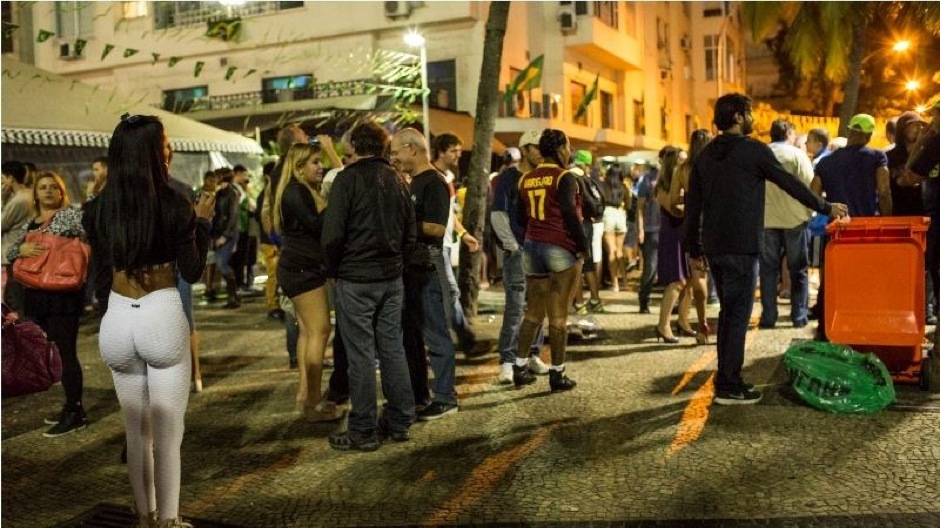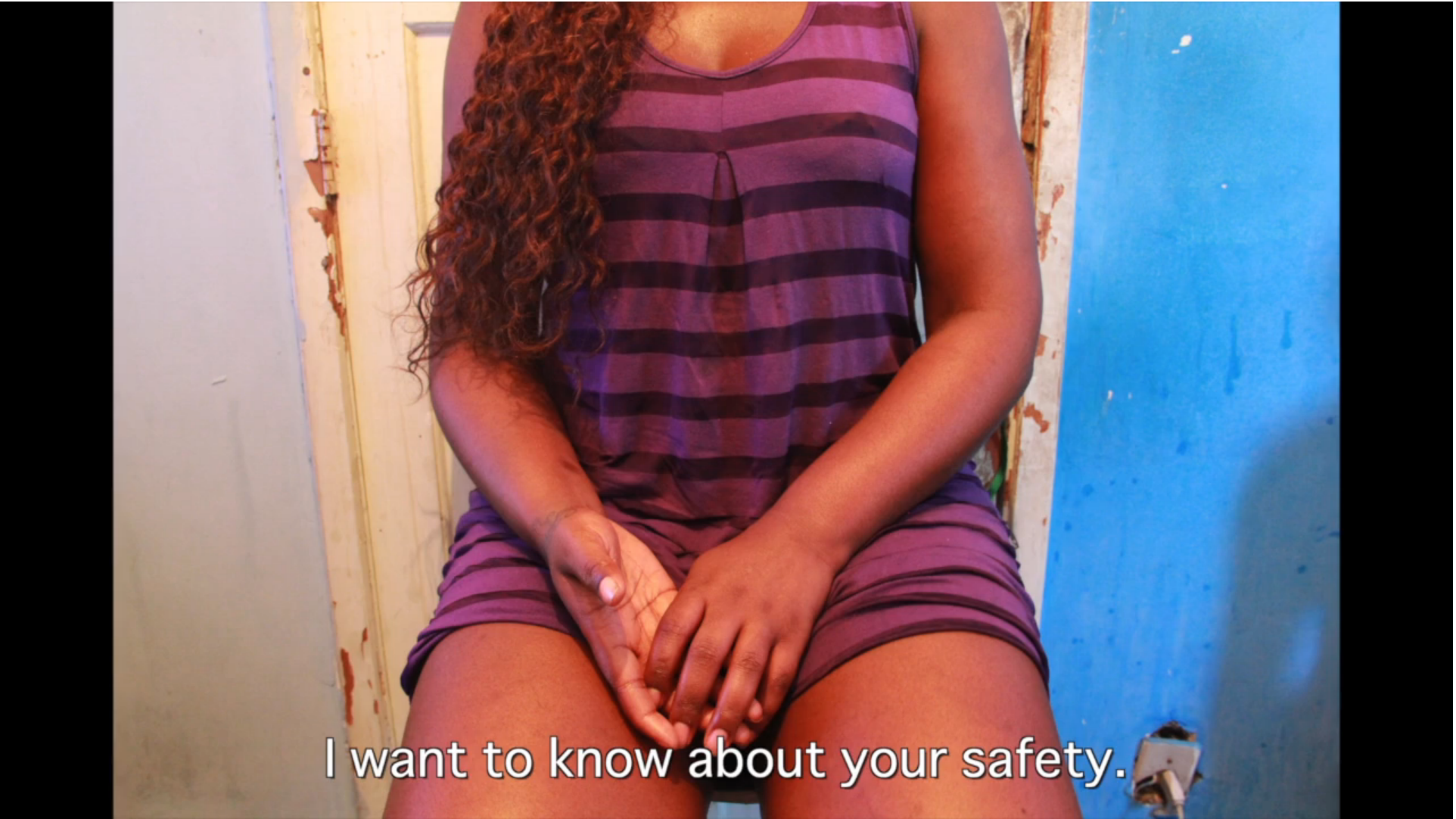I want to know about your safety.
Three weeks into World Cup, on the day of the Argentina vs Belgium quarterfinal, I met Ani, Aline’s colleague in Vila Mimosa for the last ten years. Ani works the night shift from 6pm to 6am, and often leaves as Aline is showing up to work the early morning.
After Aline told me Ani was working in both Vila and Copacabana over World Cup, I went with Amanda de Lisio, a mega-events researcher at the University of Toronto I met working with the Observatory of Prostitution/UFRJ to map out the World Cup effect on Rio’s sex workers, to ask her about her experience working over World Cup.
“World Cup did nothing for Vila Mimosa,” Ani told us.
Ani usually works in Vila Mimosa, where she charges $25 per client and clears $500 on a good day. Like many sex workers in Vila, she had big expectations about making more money over World Cup with foreign clients, as did AMOCAVIM, the Vila Mimosa Owner’s Association, several of whom invested in brothel make-overs with laser lights and stripper poles.

But the clients never materialized.
According to our findings at the Observatory of Prostitution, sex workers in Vila Mimosa and Rio’s downtown district suffered a sharp decline in business over World Cup, in part because the primary clientele – working-class Brazilian men – were not at work, as Rio declared holidays for every game they hosted.
And despite the fact that Rio has almost 300 different venues, gringos, for their part, stuck to the exact same handful of venues they frequent year-round, according to research by anthropologists Thaddeus Blanchette and Ana Paula da Silva, who organized the Observatory of Prostitution with anthropologist Soraya Simões at UFRJ/LeMetro, Rio de Janeiro Federal University’s Urban Ethnographic Lab.
16 venues, to be precise, according to our first report of findings. That’s all that benefited from World Cup. All in Copacabana, plus Centaurus, the luxury brothel in Ipanema Beach that Justin Bieber made famous when he visited last year and that Amos Barshad profiled for Rolling Stone over World Cup.
Ani is one of hundreds of women who dislocated from the city’s primary sex zones downtown and in the red light district in search of foreign clients on a stretch of Copacabana beachfront over the 32 days of World Cup.

Ani says she and her friends would work in Vila till about 1am, then take taxis to Copacabana to charge tourists $100 in the plaza next to Balcony Bar, the single most popular sex zone in Rio during World Cup despite police efforts to dampen sex tourism by raiding and closing Balcony two hours before the World Cup kick-off game on June 12.
“It’s just marketing,” Ani said, referring to the Balcony raid. “Just like the UPP [program to pacify the favelas].”
In this video, Amanda and I asked Ani about her sense of safety over World Cup with security (a euphemism for militia that extort money from sex venues in exchange for security); with police; and with clients.
Ani says her only problems were with the gringos. She talks about a Swiss man who punched her colleague in Vila Mimosa over a $5 price dispute, then called the police and took everyone in to the precinct, including Ani, against her will. When an Argentinian client bit her twice on the face the next week, she decided not to report it at all.
“As the police explained to me, because of World Cup, the gringos are really protected, get it? The police don’t want to run the risk of something serious happening with a gringo and them being responsible. So the gringos are really safe. What’s the point of calling the police?”
And what about calling the security (militia)?
“These days, it’s more the women taking care of each other. Because by the time you find somebody to defend you…. It’s complicated, so I’d rather avoid it. I’d rather resolve things, for example if I’m not feeling good, say, “Take your money and go,” understand?”
— “Ah, but you have to do it.”
“I’m not obligated to do anything. I do what I want. I’m not working for anyone but myself. I do what I want. So I’m not obligated to take my clothes off for you if I don’t want to. I’m only obligated to do what we negotiated. And that’s not expensive. So let’s do it or not, end of the discussion. There’s no such thing as “what I have to do.”

